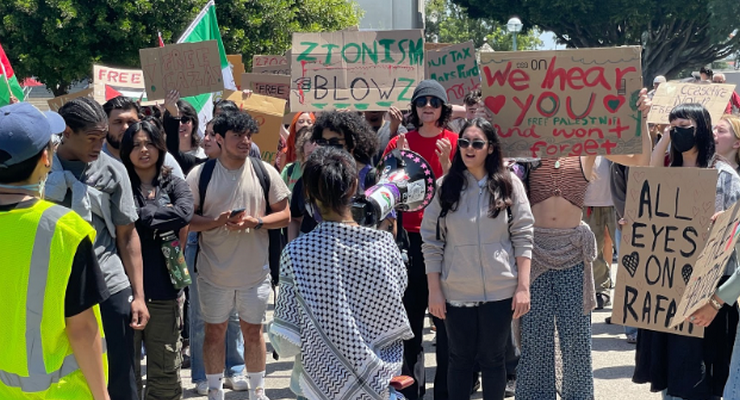 Dear Editor,
Dear Editor,
I write to share my experience with the Brown Act’s exception that allows for school boards or city councils to discuss negotiations with employees in closed session. While I value the board’s ability to discuss its priorities and offers with its senior staff who then convey the board’s priorities and offers to the union bargaining teams in separate sessions, I do not agree that having the separate negotiation sessions themselves in private supports the public good.
There is a reason that such sessions are held in private despite there being no requirement to do that. People feel more comfortable advocating for themselves in private than in public. Consequently, many times in those sessions the public good, for example what is best for students, is not prioritized. In addition, the public and the students can suffer needlessly when intransigence in those sessions delays a settlement of some issue. It would be much better for the common good if the public, for example the parents of students in a school district, could observe those sessions. It would be harder for those engaged in the negotiations to forget the higher purpose of their employment, which is to serve the students, if the parents could observe. Parents would get to see what the priorities of the parties are and see if they agree with these priorities. Such transparency would help with the vital need for the parents and the community to support the public schools. The same general principle would apply to negotiation sessions between the city’s council’s representatives and their union bargaining teams such as the public safety unions. The general public could see if the priorities align with the public good or not. That would help everyone do a better job of meeting the public’s needs, which is supposed to be the priority of public employees.
Sincerely,
Scott Phelps
PUSD Trustee
Got something to say, email Managing Editor André Coleman, at andrec@pasadenanowmagazine.



















One thought on “We Get Letters: School Board Member Scott Phelps on Brown Act’s Exception”
Not one example is given of how private negotiations are somehow such an untrustworthy process requiring a public viewing to ensure all sides are serving the best interest of the public. Simply stating that contract negotiations should be public because of the dubious claim that it will somehow make parents and the community support PUSD more doesn’t make it true.
Both sides can negotiate in good faith whether their meetings are public or private but, as you stated, people feel more comfortable advocating for themselves in private. Making the meetings public would remove that comfort in advocacy. Is that the real goal; to put the other side (unions) in a weaker position and less apt to push for what their membership wants because it somehow serves the public good to do so?
If it requires another letter, I think it would be better to accompany your assertions with some real examples that show how public negotiation benefits the public more than private. THAT would be in the best interest of the public.